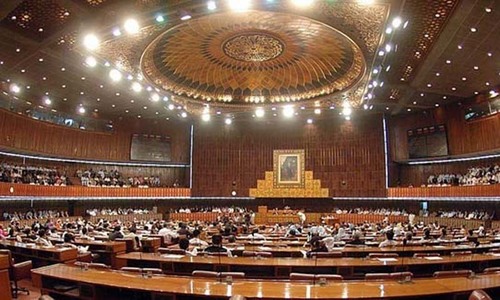WASHINGTON: The new Pakistan prime minister would have to cede more powers to the country’s strong military establishment, the US media predicted on Sunday, while some reports argued that despite Nawaz Sharif’s ouster, (Tehreek-i-Insaf chief) Imran Khan’s victory in the next general elections was not assured.
“The ousting of Nawaz Sharif as Pakistan’s prime minister by the court and the takeover of the position by his younger brother Shahbaz Sharif could hand more power to the country’s military establishment,” observed the prestigious Wall Street Journal newspaper.
The report, based on interviews with political experts in Pakistan and the US, noted that “Shahbaz Sharif has a history of being less confrontational with armed forces”.
Unlike his ousted brother, who tried to strengthen his grip over the military, Shahbaz Sharif “will be focused on delivering economic projects ahead of elections next year” and thus “giving even greater leeway” to the military establishment.
Sharif’s exit ‘doesn’t ensure Imran’s victory’ in coming elections
Moeed Yusuf, associate vice president of the Asia Centre at the United States Institute of Peace, Washington, told The New York Times that while Mr Khan played a key role in highlighting the Panama Papers case, the verdict against Mr Sharif did not assure his victory in the 2018 elections.
It did not bring Mr Khan “closer to a victory in the elections” than he had been before the ouster, he said. “Whether he gets closer or not depends on his own behaviour and whether Mr Sharif overplays his hand and what Accountability Court does,” Mr Yusuf said.
Hosts at some talk shows on US-based Pakistani television channels also referred to Mr Khan’s alleged statement that a Supreme Court judge had asked him to file the case against the ousted prime minister.
“Imran Khan is a grandmaster of political suicide,” said one of the commentators. “This is not the only time he has said something so outrageous. He does it again and again.”
The New York Times noted that the Supreme Court had directed accountability courts to decide corruption cases against Mr Sharif and his family within six months.
“But there is scepticism that the courts will reach a decisive verdict against the Sharif family and speculation that even if Mr Sharif cannot run again, his Pakistan Muslim League-Nawaz party will continue to dominate parliament,” the report added. “Mr Sharif remains deeply entrenched through a vast network of political patronage.”
An opinion piece in The Washington Post by senior Indian journalist Barkha Dutt warned that Mr Sharif’s ouster was dangerous for Pakistan.
She claimed that earlier this year, Mr Sharif had told her “he was attempting a renewed rapprochement between India and Pakistan”. “His India policy is certainly one reason why he was disliked by his army,” she added.
The author said that the verdict against Mr Sharif had weakened Pakistan’s “tenuous democracy and allow(ed) its all-powerful army to grab power without having to formally seize it”.
Ms Dutt warned that Mr Sharif’s political opponents might be rejoicing at his ouster but they should know that “this verdict sets a dangerous precedent. Tomorrow it could be Mr Khan.”
In The Financial Times, which is also published from New York, veteran Pakistani journalist Ahmed Rashid wrote that Pakistan could survive the chaos of Mr Sharif’s ouster and even it could benefit from it if the military let the judiciary deal with corruption.
“It appears that the judiciary will now have its hands full cleansing the Augean stables. As long as that is left to the judges, and the military does not try to turn the situation to its own ends, Pakistan may benefit in the long term,” he wrote.
Mr Rashid predicted that the judgement would allow the military to “take even firmer control of national security and foreign policy” and would hurt a number of leading opposition politicians as well, such as Imran Khan and PPP leader Asif Ali Zardari , who also face corruption and money laundering charges.
He warned that over the next six months, the court could prevent all of the country’s major politicians from playing any role in the elections, but it could also curb corruption if the military did not interfere in the judicial process.
Published in Dawn, July 31st, 2017














































